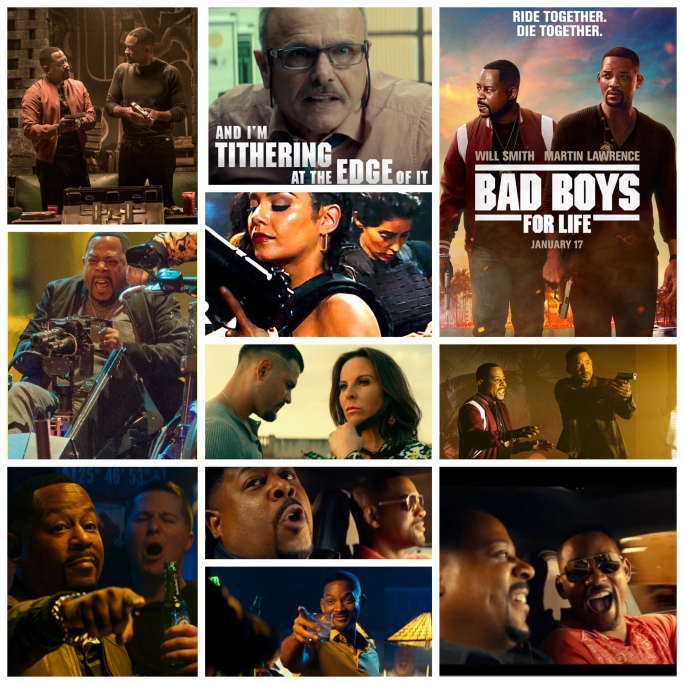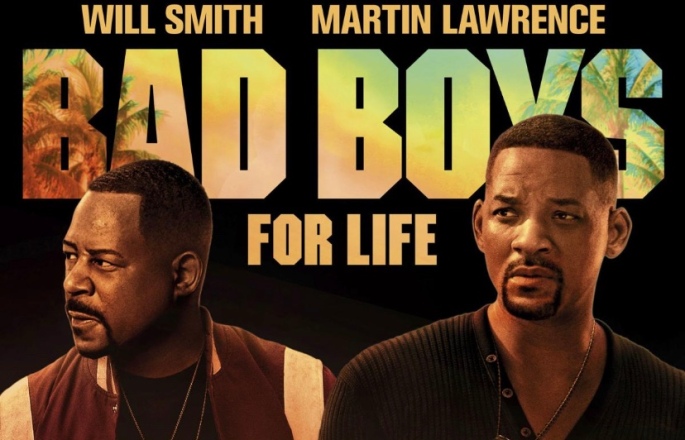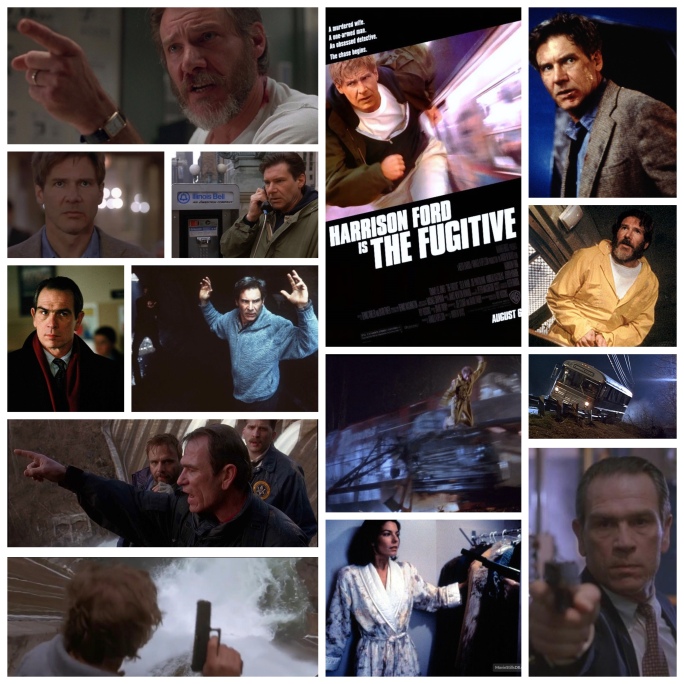
One of the most popular trends in the 1980s cinema was the buddy-action film. The best ones to come out of this period were 48 HRS. (1982), Beverly Hills Cop (1984), Lethal Weapon (1987), and Midnight Run (1988), which spawned numerous imitators and sequels. Along with Lethal Weapon, Midnight Run is arguably the genre’s last gasp before slipping into formulaic predictability and self-parody (see Rush Hour, Blue Streak, et al). What makes Midnight Run so good, even after all these years, is the unbeatable combination of an excellent cast, a witty script and solid direction.
Jack Walsh (Robert De Niro) is a bounty hunter hired by his bail bondsman Eddie Moscone (Joe Pantoliano) to find and transport to Los Angeles, one Jonathan Mardukas (Charles Grodin) — a.k.a. “The Duke,” an accountant who stole $15 million from Las Vegas gangster Jimmy Serrano (Dennis Farina). What is initially a simple “midnight run” from New York City to Los Angeles, turns into the road trip from hell as Walsh and Mardukas are pursued across the country via plane, train, and automobile by dim-witted gangsters, frustrated FBI agents led by Alonzo Mosely (Yaphet Kotto), and a rival bounty hunter named Marvin Dorfler (John Ashton).
While this film may be a comedy, Brest lets us know right from the get-go that it’s going to have a slightly unpredictable edge to it as Walsh is almost killed by a deadbeat he’s supposed to bring in. If that wasn’t bad enough, his guy is almost snatched away from him by Dorfler. I like that Brest takes the time to show Walsh doing his job and that he’s good at it. The bounty hunter is able to track down and find Mardukas where the Feds and the Mob were unable.
Brest wastes no time introducing the film’s various antagonists starting with Mosely who approaches Walsh on the street. The bounty hunter quickly finds himself surrounded by four FBI agents. Walsh knows what they want and gives them nothing but smartass replies to their questions. Yaphet Kotto doesn’t play Mosely as an inept bumbler but instead brings an impressive intensity to the role that makes his character something of an intimidating figure which, of course, makes his kind of incompetent lackeys that much funnier the more frustrated he gets when they are repeatedly unable to catch Walsh and Markdukas. For example, there’s the withering glare Mosely gives one of his flunkies when he states the painfully obvious – that Walsh has his identification.
Midnight Run adheres to the basic formula of the buddy-action film with two diametrically opposed characters teaming up to fight the bad guys. Inevitably, humorous situations arise from constant bickering while the duo shoots, punches, and fights their way out of action-packed set pieces. Ultimately, what makes Midnight Run work so well is how it messes around with the formula. Instead of having one funny guy and one straight man, you have two straight men with De Niro and Grodin. And yet it works, due in large part to the skill of the two leads who complement each other perfectly — De Niro plays Walsh as a gruff, foul-mouthed guy constantly annoyed by Grodin’s clean-cut accountant, armed with a seemingly endless supply of personal questions to ask his traveling companion. Their scenes together seem very spontaneous and real as they annoy the hell out of each other.
Fresh from his scene-stealing appearance in The Untouchables (1987), Robert De Niro was eager to try something different. He wanted to do a comedy and to this end, pursued the lead role in Penny Marshall’s film, Big (1988). Marshall was interested but the studio was not and thankfully the role went to Tom Hanks. Martin Brest, who directed Beverly Hills Cop, had found another script by George Gallo in the same vein — one that blended elements of comedy and action. He sent it to De Niro and was very up front with the actor: Midnight Run was a commercial film, not an in-depth character study. Regardless, De Niro researched his role by working with real-life bounty hunters and police officers.
Paramount was originally interested in backing Midnight Run but they wanted a big name star opposite De Niro in order to improve the film’s chances at the box office. Their production executives suggested that the Mardukas character be changed to a woman and wanted Cher for the role in the hopes that she would provide some “sexual overtones.” Brest wisely rejected the idea and so Paramount suggested teaming De Niro up with Robin Williams. Williams was a big star in his own right and eager to get the role. He even offered to do an audition for Brest — a rarity for the comedian whose name alone could green light projects. However, Brest was impressed by Charles Grodin’s audition with De Niro. The director felt that there was a real chemistry between the two actors. As a result, Paramount backed out and the studio’s president Ned Tanen claimed that the budget became too high and decided that “it wasn’t worth it.” Universal Pictures became interested in the project. It is to Brest’s credit that he supported Grodin down the line and refused to change his decision despite studio pressure.
Brest brought Grodin aboard with the understanding that the actor would have the opportunity to improvise. Grodin was very much open to De Niro’s improvisational technique. He remembered that De Niro “was all about ‘work,’ plain and simple, and being with him felt like breathing pure oxygen.” Some of their best scenes feel like the screenplay was just thrown out and that they simply riffed off one another. For example, the night boxcar scene where Walsh and Mardukas bond, after illegally stowing away on a train, was improvised entirely.
Much of Midnight Run’s humor comes from these moments as they constantly antagonize each other. This relationship is believable because the film takes the time to develop it with many scenes where the two men just talk, and this allows us to get to know them. Most buddy films spend only the bare minimum amount of time on character development and instead cram as many action set pieces and explosions in as possible. As a result, we do not become attached to the characters. Midnight Run does not fall into this trap.
For all of its commercial elements, George Gallo’s script has very strong, three-dimensional characters that transcend their stereotypes. It was the script that first drew Grodin to the project. He said in an interview that “the script had dimension beyond what I’m used to seeing. The dimension of character. It looked like a good action-adventure genre picture with strong character evolution.” De Niro, being the consummate actor that he is, still manages to inject little touches and details, like a habit of constantly checking his faulty watch, or the nice bit of comedy when he checks out Mosely’s identification that he pickpocketed during their first meeting. De Niro walks away from the camera only to quickly turn around and flash the stolen ID in an amusing parody of an FBI agent. It is these little bits of business that provide insights into his character. Brest commented in an interview that, “sometimes I’d let the camera run after finishing a scene to see if he did any bits, and invariably he did.”
From the two leads to the rest of the supporting cast, each character is given a moment or two to say or do something that makes them distinctive and funny. For example, there is John Ashton as Dorfler, a rival bounty hunter who falls for the same stupid trick every time. Dorfler is not just some generic bounty hunter. Ashton transforms him into a self-absorbed idiot who is completely oblivious to the big picture. Even though Dorfler is always on the receiving end of many jokes, he gets his chances to prevail. However, you know that, ultimately, he is destined to fail. Dorfler has a distinctive personality instead of being merely a cardboard cutout.
Joe Pantoliano is so good as the increasingly exasperated bail bondsman. His opening exchange with De Niro early on in the film is so well played. In a matter of moments De Niro and Pantoliano suggest a long history between their two characters in the way they act towards each other. Eddie is a consummate bullshit artist but Walsh sees right through that. I like the nice little detail that Brest throws into this scene where Eddie pays Walsh by taking out a wad of cash stashed in his pink and white socks. It is details like this that say so much about a character. Eddie cares only about money and his reputation. These characters could have been presented as clichéd stereotypes but Brest wisely casts veteran character actors like Ashton and Pantoliano in these roles.
Many of the supporting characters appear constantly throughout the film in a series of recurring gags, like Mosely running into people who’ve encountered Walsh posing as him, or Mardukas’ never-ending questions about Walsh’s personal life (“Why were you so unpopular with the Chicago Police Department?”), or Dorfler getting fooled by the same trick time and time again. Then there’s Joey (Robert Miranda) and Tony (Richard Foronjy), two dumb Vegas wiseguys that work for Serrano. Tony’s the slightly smarter one but not by much. The give and take between these two minor characters is really funny and the script gives them a moment of actual competency which makes them more than just one-dimensional thugs. It helps that the two actors playing them do such a good job bringing these characters to life.
Much like Yaphet Kotto does with Agent Mosely, Dennis Farina plays his character as if he were in a drama and not a comedy. Unlike his goofier mobsters in Get Shorty (1995) and Snatch (2000), the actor transforms Jimmy Serrano into an imposing figure best illustrated in the scene where he confronts Mardukas and tells him that he’s going to die. For a brief moment, Midnight Run stops being a comedy and there’s a real sense of danger thanks to Farina’s chilling presence in this scene. He’s also quite funny in the scenes where he threatens his underlings with all sorts over-the-top violent acts if they don’t do his bidding.
Nowadays, it’s hard to remember when De Niro doing a comedy was something of an anomaly. Sure, he had done The King of Comedy (1983) but by and large he was known at the time as a dramatic actor. So, teaming him up with veteran comedic actor Charles Grodin in an action comedy must’ve seemed like a risky prospect to the studio. But this would be tempered with director Brest behind the camera. This was years before Gigli (2003) when he was still enjoying the good will from the smash hit Beverly Hills Cop. If anybody could make De Niro funny while still retaining his trademark intensity, it was Brest.
Now, there is a whole generation of filmgoers that only knows De Niro from comedies like Meet the Parents (2000) and Analyze That (2002). Charles Grodin has, for the most part, shunned the limelight. He had a short-lived talk show but has, unfortunately, not done anything on par with his work in Midnight Run. In fact, he hasn’t acted much since 1994 and said in a recent interview that he has quit acting altogether. By the late 1980s, early 1990s, the buddy-action film had become a tired and hackneyed cliché. Screenwriter Shane Black offered a brief breath of fresh air with Lethal Weapon (1987) and The Last Boy Scout (1991) but generic time-wasters, like De Niro’s own Showtime (2002), Serving Sara (2002), which blatantly rips off Midnight Run, or the more recent The Bounty Hunter (2010), are still cranked out with predictable regularity by the studios. Back in 1988, Brest delivered the goods in a big way, serving up an R-rated film that mixed exciting car chases and shoot-outs with hilarious recurring gags and assortment of colorful characters.















